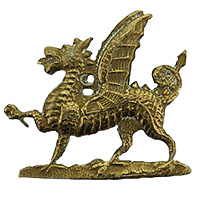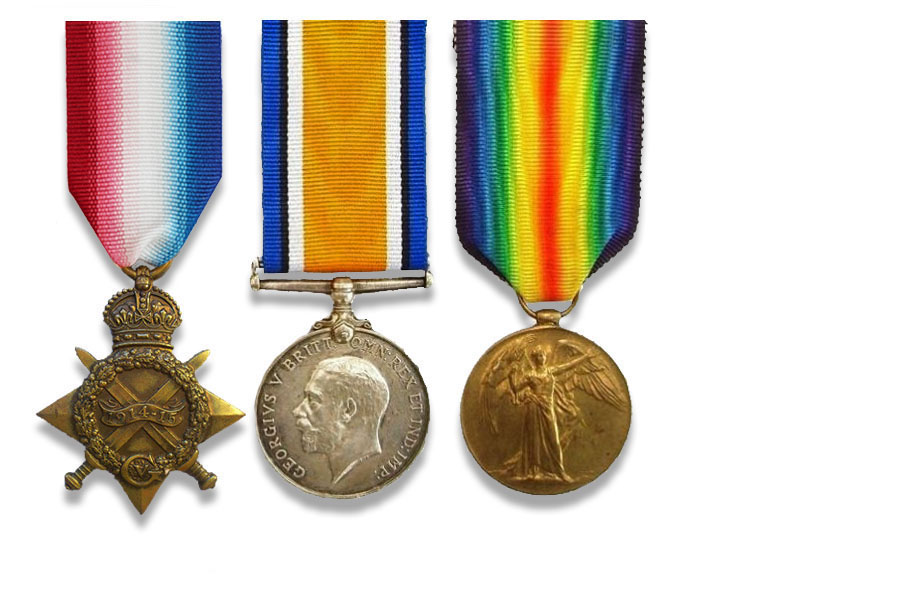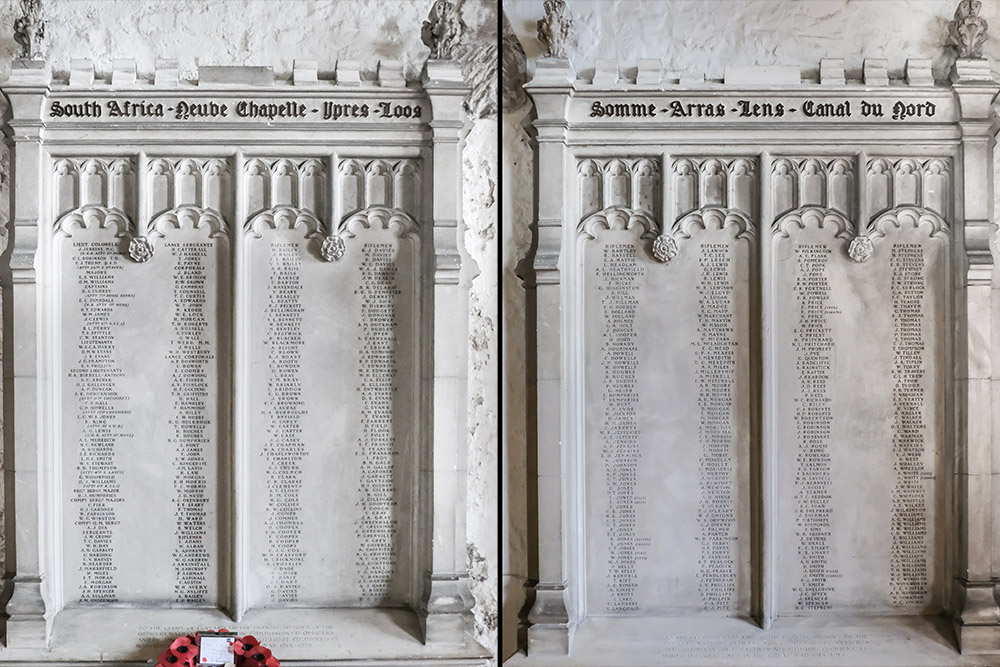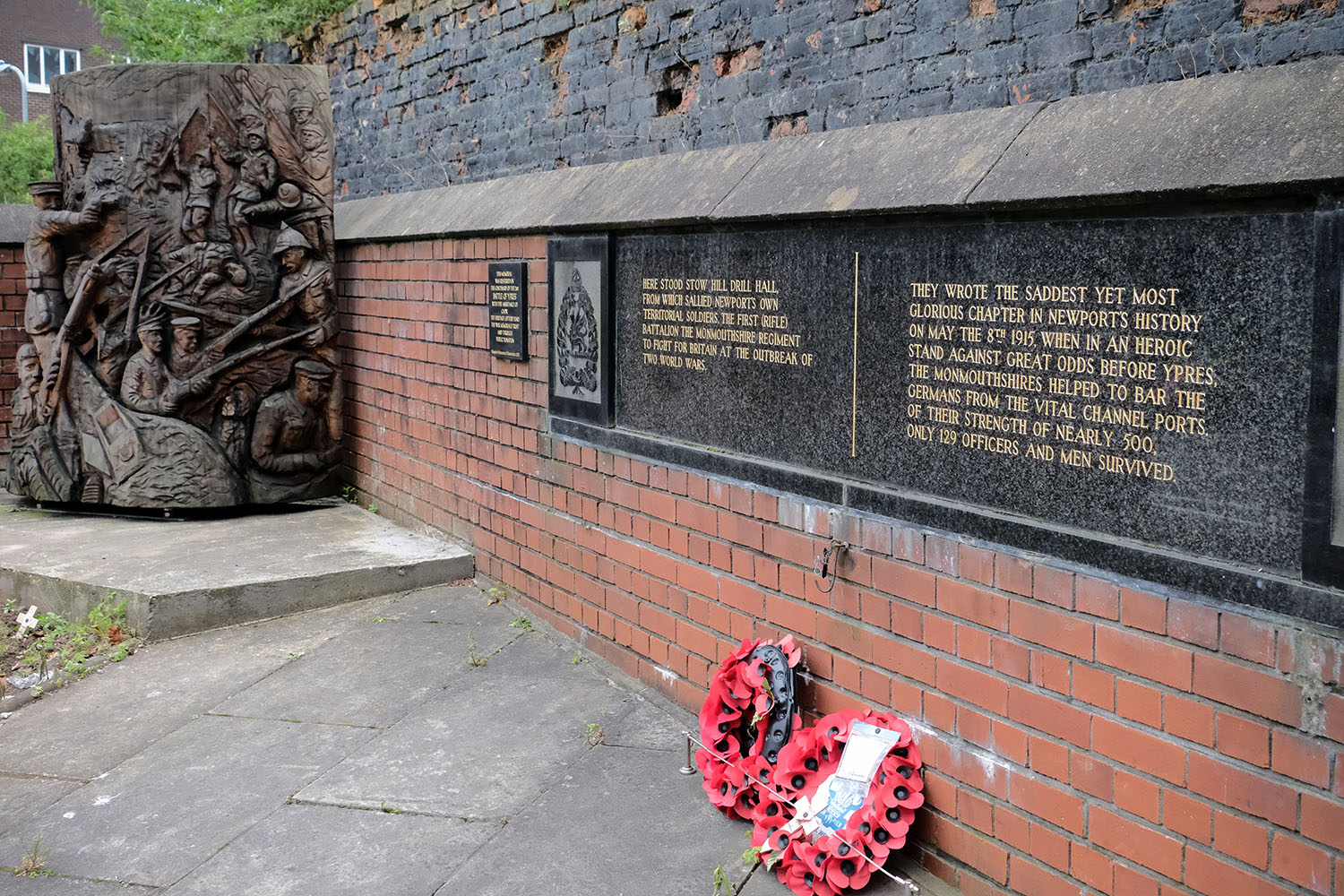| Unit/Regiment | Monmouthshire Regiment |
| Battalion | 1st |
| Rank | Private |
| Service Number | 2087 |
| Theatre of War first served in | (1) France |
| Date of entry therein | 13/02/1915 |
| Age at Death | |
| Date of Death | 08/05/1915 |
| Place of Death | France and Flanders |
| Burial/Memorial | Ypres (Menin Gate) Memorial |
| CWGC Family Details | Son of Josiah and Jane Hyde, of 54, Clarence Place, Newport, Mon. |
| Born | Wolverhampton, Staffs |
| Enlisted | Newport, Mon |
| Resided | |
| How Died | Killed in action |
| Theatre of War | Western European Theatre |
| Medal Entitlement | 1914-15 Star British War Medal Victory Medal |
| Notes |
George Harry Hyde's Story
Family
George Harry Hyde was born in Wolverhampton in 1894 to Josiah and Jane (Nee Massey) Hyde. Josiah was a steel worker and Jane ran a local grocers shop. In 1899, when George was just 6 years old, his mother died and he and his brother Josiah were sent to live with their relatives the Carthy family who were living at 59 Somerton Road, Newport. James Carthy and his son Robert both worked at the Orb
By 1911 George was living with his father Josiah in Somerton Road they were lodging with Mr and Mrs Paul.
Military
George and his brother Josiah joined up almost immediately, Josiah was discharged as being medically unfit during his training. George joined the 1st Monmouthshire Regiment and became Rifleman Hyde 2078 . On 13th February 1915, the 1st Monmouths docked at Boulogne. In late April the battalion was sent to Belgium to defend Ypres and it was in this area that George lost his life.
On 8th May during the Battle of Frezenberg Ridge the 1st battalion Monmouthshire regiment was almost completely decimated. The German bombardment prior to the attack was described by Sir John French when he addresses the Brigade as “probably the heaviest to which troops had ever been subjected to”. It began at 6.30am and as the morning wore on there were many casualties. The Germans managed to break the line leaving the Monmouths to defend themselves from the front as well as the right flank. Heavy machine gun fire from the right flank was directed at the trenches and they began to collapse in places.
Later in the morning all communication by wire was cut forcing Colonel Robinson the commanding officer to enter the trenches himself and ordered the battalion to fall back to a new position. At 11am while the men were attempting to file out through the communication trenches which were very shallow and narrow and full of bodies Colonel Robinson was killed. When the men eventually reached their new position, they found themselves once more under heavy machine gun fire. The Northumberland Fusiliers fell back towards the trenches now occupied by the Monmouths with the Germans following them. The Monmouths managed to gather enough fire power to stop the Germans in their tracks. Another heavy bombardment took place around dusk resulting in yet more casualties. Towards the end of the evening the Dublin Fusiliers took over the positions of the Monmouths.
The following day 2 officers and 10 men were all that was left of the regiment in the firing line. 33 men were listed as killed and 319 were missing with 82 reported missing and wounded, a total of 434. The Officers reported 5 killed, 5 wounded, 1 missing and 1 taken prisoner.
We will never know when George met his fate on that terrible day, but he along with Thomas Henry Counsell and John Robinson all in the 1st Monmouths died on that day. The three men are remembered at Ypres in Belgium on the Menin Gate and in Newport on the Orb War memorial.
Josiah, George’s father received his back pay and War gratuity of £3.00









